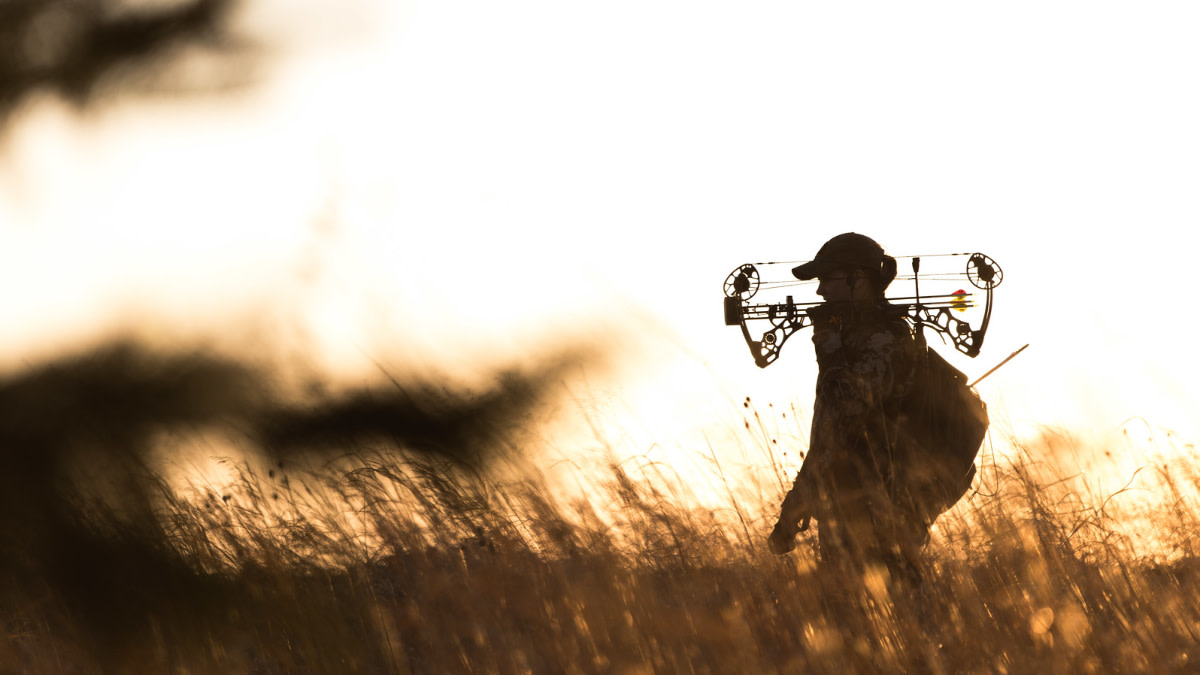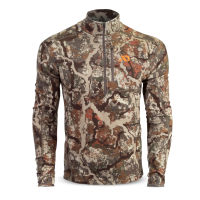
In modern outdoor media, few words are as contentious as “huntress.” By traditional definition, a huntress is simply a woman who hunts. A quick search on the slang glossary Urban Dictionary, however, reveals a much different contemporary meaning: “A huntress is a female hunter with 2k+ followers on Instagram. She has very little knowledge of hunting and has killed few (to zero) animals. She’s on pro-staffs but hasn’t ever used the products in the field. You can spot a huntress over a legitimate female hunter because they’ll use the term “huntress” in their Instagram handle.”
This same dictionary has definitions for DudeBro, Yolo and Dankrupt—it’s not my go-to reference for a Scrabble game with Grandma. Nevertheless, an astounding number of men and women in the outdoors world share a similar interpretation of the word, despite centuries of varied usage. The term huntress existed long before the internet, but cyberspace may have helped pervert a word that’s more complex than many assume.
Modern (de)Meaning
“Hyper-sexualization of the sport for the sake of likes and followers runs rampant in the sphere of the term ‘huntress,’” says former law enforcement officer and hunter Tiffany Compton.
Compton is all for empowering women, but she has a hard time taking today’s use of the word seriously. “I call myself a hunter because that’s what I do—and that activity has nothing to do with my being a female. When I hear the term used now, I catch myself immediately tuning out or moving past whatever dialog it’s involved in.”
Tanya Avery, an avid hunter and co-owner of Avery Adventures, doesn’t sugarcoat her thoughts on the term: “I think it’s one that a majority of girls who don’t actually hunt use.”
Tanya runs a gear review website with her husband and is practiced in sharing her honest opinion. “[Self-described huntresses] are using an outdoor platform to gain notoriety for non-hunting purposes.”
Tiffany and Tanya are referring to online platforms like Instagram, YouTube and Facebook that have carved out a new vocation for savvy self-promoters called “influencers.” Companies know that customers’ eyes are connected to their wallets, so they put product in the hands of popular online personalities and link the post with a purchase URL.
In hunting and fishing, social media influencers are usually paid in free gear, trips or ego boosts, but especially high-profile ones can charge a company thousands of dollars for a single Instagram post. An influencer’s fee depends on the size of their following, so aspiring influencers often build their audience by posting how-tos, inspiration, comedy or racy imagery. Some choose to purchase additional followers from click farms. They may also use searchable hashtags to help reach potential followers. Popular among those is #huntress.
“There are definitely certain hashtags that get a lot of eyes, and that’s the name of the game for some users on a format like Instagram.” Tiffany urges hunters and anglers to be aware of the context their words and photos convey.
She coined the hashtag #HuntBirdsNotLikes in a light-hearted attempt to jab at the growing social trend, but she’s serious about separating herself from the young women who hunt and fish in little to no clothing. “When I see certain individuals posing on the plains of Africa with an animal they claim to have harvested in nothing but a bikini, I can’t help but feel embarrassed to be associated with them in any way. Same goes for women who pose topless with a fish pressed against their breasts.”
For some sportsmen and women, seeing that particular word so often pinned on sexy photographs and questionable motives has numbed them to its historical usage.
Hunter and writer Hannah Kycek acknowledges the noun in both its past and present forms, but still expresses vehement disdain for it. “The word ‘huntress’ plainly means a woman who hunts but may also be desperately seeking recognition for taking part in a hobby or sport that is predominantly a man’s activity.”
Hannah feels “huntress” is demeaning and indicative of women who rely on others for self-worth and, in some cases, knowledge. “If I seek any affirmation in this world, it surely isn’t from the Internet,” she wrote last year in an opinion piece titled Don’t Call Me “Huntress.”
Searching the huntress hashtag produces a medley of smiling selfies, sweaty camouflage, tight yoga pants and hard-earned grip and grins. Hunting, however, seems to have fewer half-naked participants than its aquatic counterpart.
Complicated Context
Not all sexual connotations come in the form of underboob and lip pouts. Many outdoorswomen agree that the word itself is sexy—not because of its relation to revealing pictures, but because of the strength it embodies. Former New Zealand fishing guide Belinda Thomas understands the confusion but still defends the term: “To be a huntress means to be confident, powerful and strong. These are sexy attributes.”
Belinda expects all outdoors people need to abide by certain standards. “As long as the intent is to empower, educate and inspire, then I’m good with that. When it’s to sexualise, titillate or promote the individual and not hunting or fishing, then it’s not okay.”
Self-imposed standards and a better understanding of the meaning of huntress may be the key to the word’s acceptance. Bowhunter Rihana Cary says it’s all in the context of the messaging attached. “It can be super harmful, but it can also be super motivating. In the end, we are all just hunters. Whether we are women or men, most of us put in the work equally and respect things the same.”
I was curious to hear more about men’s perception of the word, so I asked the guys in the MeatEater office to share their thoughts. They were in agreement that it’s redundant. Hunter, producer and father of two daughters, Janis Putelis, treaded carefully, expressing confusion that “huntress” would be preferred over the gender-neutral term “hunter”—especially at a time when people are so sensitive to political correctness.
“To me it’s a word the hunting media came up with to help sell the idea of female hunters—a way to sell ‘sexy’ masked as female hunting participation. It’s a dirty word to me, and I wouldn’t want my wife or my daughters to be called huntresses.”
History and Etymology
People haven’t always felt that way. The English word “huntress” dates back to the late 14th century and its root has been around even longer. Artemis, the daughter of Greek God Zeus and twin sister to Apollo, was the goddess of hunters, animals, wilderness, childbirth and virginity. She was skilled with a bow and she carefully guarded her virginity.
Artemis regularly defeated men intending to steal her virtue, and deliberately drew attention away from her sexuality. Hunters traditionally avoided sex before a hunt due to a belief that the smell would scare off animals, but some historians believe that Artemis’ abstinence was largely due to her refusal to become subservient as a man’s wife, prerequisites for lawful sex.
Though she now eschews the term, as a child Hannah Kycek identified with Artemis, and she often recounts a tale of the Greek goddess. A man witnessed Artemis bathing, so she promptly turned him into a deer and set his own hounds upon him. “In reality, the correlation and contradiction is laughable,” Hannah said. “Artemis (figuratively) was a ‘huntress,’ who had enough respect to never allow men to sexualise or disrespect her. She was self-reliant, strong, and independent; all that a modern huntress is not.”
But Kimi Werner, a self-described huntress, is the epitome of independence, strength and dignity. She remembers struggling to find the best word to describe herself. “‘Spearfisherwoman’ wasn’t a real word, but it also seemed a bit too specific and technical to explain the importance of taking a meal from nature. The words ‘hunter‘ and ‘lioness’ each seemed to offer more relevance to my lifestyle—together they made the perfect description of who I feel like I am, a huntress.”
Kimi’s mention of the ‘ess suffix is important. These three little letters play a major role in the past and future of gender roles in the English language.
Rihana associates the -ess suffix with sex and admits that she can’t bring herself to adopt it. “It evokes all the wrong aspects of women that hunt. Look at the words temptress, seductress, enchantress… a temptress is someone who uses their likeness to allure or seduce someone. The word huntress reminds me of the same thing”.
The word temptress, however, is just a female version of tempter, while enchantress is simply the feminine noun for enchanter. The French (whose nouns each have their own designated grammatical gender) lent us the -ess suffix centuries ago as a way to denote gender. There were authoresses, giantesses, sculptresses and adventuresses. There were also goddesses—like the empowered archer, Artemis.
The connotation of words have a tendency to change over time. Artemis, for example, was the goddess of hunters but she was also the mistress of animals. The word “mistress” stems from “master,” but when used in today’s context, it sounds like Artemis was a harlot jumping into bed with married cervids.
Over the course of three centuries, the definition of “mistress” evolved from “a woman with skill and power,” to a “man’s sweetheart,” to a “participant in a sexual relationship with a married man.” A closer look at the word huntress may show a similar shift.
Jessica DeLorenzo, a prominent hunting photographer, first heard the word “huntress” in stories, comics and movies when she was a little girl. These storybook characters may be partly to blame for the change of the word’s implications. Jessica acknowledges that her perception has changed over the years. “Then, I would have attributed the word to a powerful female character, but now I see it used by men and women to describe women in the outdoors both positively and negatively.”
It’s hard to pinpoint exactly where the meaning began to shift. It may have started as early as 1941 with the appearance of Wonder Woman. Wonder Woman’s given name, Diana, pays homage to the Roman version of Artemis—but the DC Comics’ character Huntress took the image to another level.
In the 1980s, The Huntress began to make regular appearances as a scantily-clad superhero. Several versions of the character appear in comic culture. One version shows her as the heroine child of Catwoman and Batman; another shows her as a trained killer who sleeps with men to establish trust. The depiction of Huntress varies, bearing resemblance to the mixed representations we see today.
Empowerment or Objectification?
Of the many women I interviewed for this article, there was an even split between those who hope to keep the word alive and those who’d like to forget it. Not all women are ready to let go of the feminine versions of the words they’ve come to identify with. So, while there are some gender-specific words that are easily thrown into the “toss” or “keep” piles (ie. farmerette and she-wolf), it looks like huntress is one we’re not ready to let go, yet.
Those who identify as huntresses owe it to themselves and their fellow sportswomen to learn about the word’s long-standing history and the women it has helped define. From Amazonian tribes, Australian aborigines, European New World settlers, even Greek Goddesses, the huntress has been a reverent descriptor of aptitude and strength.
“I think sometimes we sell ourselves short,” Kimi concluded. “Women often feel so lucky to have a seat at the table that we compromise in order to fit molds—only we sit at the table to have someone else order for us.”
Feature image via Captured Creative.





